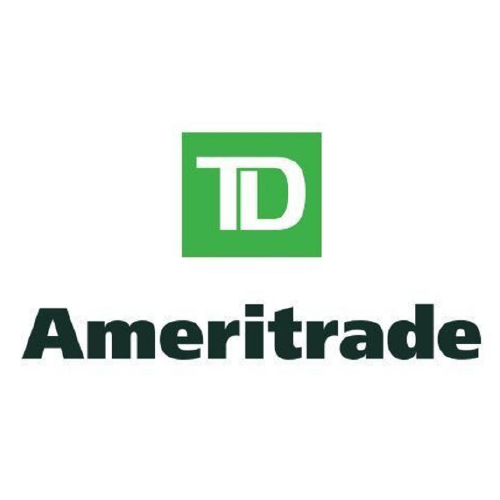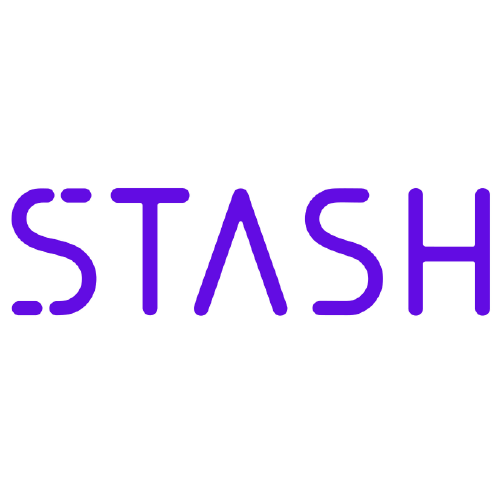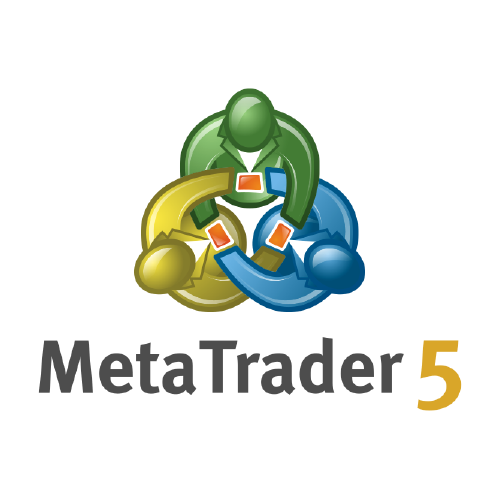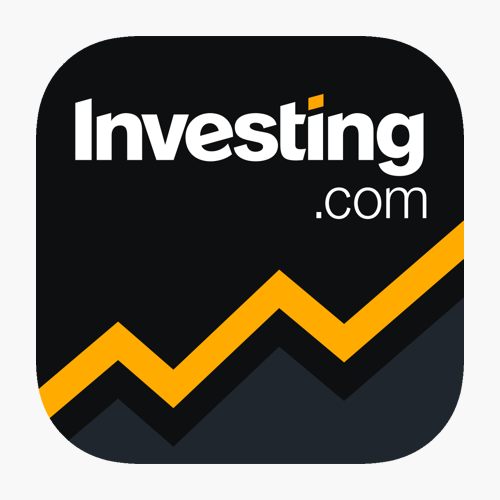
Forex Trading Scams: How to Spot and Avoid Them
- Why Is Forex Susceptible to Trading Scams?
- What Types of Forex Scams Are There?
- Point-Spread Manipulation
- Automated Trading Programs (Robots/Expert Advisors)
- Signal Sellers
- Fake/Unscrupulous Brokers
- Investment Management Funds
- High-Yield Investment Program (HYIP)/Percent Allocation Management Module (PAMM)
- Copy Trading/Social Trading
- How to Spot a Forex Scam
- Red Flag Checklist
- How to Protect Yourself from Forex Scams
- Due Diligence
- Too Good to Be True?
- Broker Location
- Proof of Claims
- Education
- Final Thoughts
Currency trading has roots in ancient times, where goods and services were exchanged for coins – and coins were exchanged depending on their worth (usually related to the amount of gold/silver each coin was made from).
In the late 1990s, forex trading became open to retail traders – and with the equivalent of $5 trillion traded every day – 24 hours a day, 5 days a week, it is the most traded asset class in the world.
With a lack of regulation and so much money trading daily, traders can be targeted by scammers offering ways to make vast sums of money with little or no risk.
But how can you spot and avoid these scams? Find out below.
How to Protect Yourself from Forex Scams
Why Is Forex Susceptible to Trading Scams?
The very nature of the volatile exchange rate makes it ripe for get-rich-quick scammers, offering 100% profit based on a ‘secret formula’.
Hedge fund managers, banks and investment management companies that have deep pockets to pay for PhD-qualified professional forex traders are often seen to make consistent money from their trades.
Inexperienced traders entering into the market might look for a reputable source of education, seeking to learn the secrets of the business so that they can emulate the large returns promised by ‘successful forex traders’.
Whether through ineptitude, poor information or trusting the ‘snake oil’ merchants, new traders need to remember that forex trading is not a source of overnight riches and that it is a zero-sum game – for someone to profit on a trade, someone else must make a loss.
What Types of Forex Scams Are There?
Point-Spread Manipulation
By increasing the spread between the bid and sell price to 7 or 8 pips (the smallest denomination of a currency, usually to 4 decimal places) instead of the more usual 2 to 3, the broker is able to make more money.
This practice has largely been clamped down on in the US, but offshore brokers might still operate these scams.
The Best Trading Platforms
Let’s take a look at the best trading to earn more.
1. Liteforex
Best for: Learning from others
Liteforex is one of the most popular online reliable brokers over the world. Over the past 15 years, it has developed a strong reputation for beginners and experienced investors alike, has a minimum $100 deposit.
The Liteforex app aims to use easy for every clients. It is available on Google Play and the App Store and allows you to move seamlessly between devices.
It’s innovative features include:
- Pre-programmed one-click trading
- Copy Trader – Copy the trades of others in real-time
- Its own social networking platform
- Pre provided investment strategies which they call Copy Portfolios
The app boasts the ability to allow you to place online trades even if the trading platform is down.
The information is being presented without consideration of the investment objectives, risk tolerance, or financial circumstances of any specific investor and might not be suitable for all investors.
2. FXTM
The FXTM Platform itself is intuitive and easy to use, suitable for those just getting into trading and those more experienced alike.
It is designed to offer a full replication of an institutional trading environment including depth of market.
With advanced risk management and order functionality, this is a detailed platform for trading stocks.
The FXTM app offers a premium range of order types, with advanced technical analysis tools.
You can set up push and email notifications for the important things that you want to know in relation to your stock trading needs – such as price alerts and trade statistics.
Within the app, you can:
- Complete a range of order types
- Work with all your accounts in one app
- Understand detailed trade analysis
- Review detailed order tickets – base currency dollar value and pip distance
As a platform, there are comprehensive educational videos and explanations of symbols, so you can find optimized processing for expert advisors and indicators.
The information is being presented without consideration of the investment objectives, risk tolerance, or financial circumstances of any specific investor and might not be suitable for all investors.
3. FBS
Best for: CFDs
This app is designed for those wanting to trade outside of the US. It is considered one of the best for CFDs on shares and has a minimum $100 deposit.
There are low trading fees but considerable fees for inactive users.
The educational section is average, as are the research tools. However, the app is easy to use overall.
This app is recommended for those familiar with CFDs and who are actively trading. Reviews of the app show that users like the:
- Account-opening process
- Deposit and withdrawal features
- Customer service
- Actual trading platform
The information is being presented without consideration of the investment objectives, risk tolerance, or financial circumstances of any specific investor and might not be suitable for all investors.
Automated Trading Programs (Robots/Expert Advisors)
These robots can undertake trades without human intervention, are easy to use and usually sell for only a few hundred dollars.
These systems have often not been submitted for any form of formal review or independent testing, and although they can be demonstrated on historical data, there is some suggestion that many robots may have been over-optimised or created to fit the data.
When looking at robots with an attractive win rate, be aware of scalping – multiple trades for tiny profits that make it look like the robot is wildly successful, but any good size loss would wipe out profits quickly.
Without knowledge of the algorithms used, traders cannot be sure that the robot is not just sending random buy/sell signals, making it difficult to trust.
Signal Sellers
Signal sellers can be retail traders, pooled asset managers, investment account companies or individuals. They normally offer long-term trading experience and successful trading abilities, convincing testimonials and promises of big profits to tempt the average trader.
Signal sellers offer tips in exchange for a daily, weekly or monthly fee. This process can be manual or automatic, based on technical analysis, breaking news or a combination of both.
Signal sellers can offer trading tips when you sign up with a specific broker, receiving a commission from the broker.
Of course, scam signal sellers will either take your money and disappear or offer you a few good tips before never being heard from again.
Fake/Unscrupulous Brokers
Of course, sometimes the broker is incompetent rather than unscrupulous – making mistakes rather than scamming traders.
Fake brokers, or those that are out to make money from traders without offering anything in return, usually fall into the following categories:
- Price Slippage – In trading terms, price slippage is when the expected price of a trade is different from the actual price at the time it is sold. Sometimes this is a good result for the trader, other times it loses money. When a broker makes a trade, it offsets another position in the market to mitigate its risk, making the trade when the offset position is known. If the offset position is worse, the trader price is worse. However, if the offset position is better, the price for the trader should be better – but a scam broker will not pass this difference on to the trader.
- Liquidity – When the broker does not have enough capital to cover trades. This is not a scam as such, but it is a sure-fire way for a trader to lose money. This leads to an increased risk of bankruptcy, risking the investment of the trader. Inept brokers might not have enough liquidity to run their business effectively, and this could be a problem for multiple withdrawals.
- Churning – Individual brokers are often paid on commission, based on the number of trades that they make. This leads to unnecessary buy/sell actions to make more commission – known as churning. Churning negatively affects the trader and could lead to legal action being taken against the broker if it is regulated.
- Commingling of Accounts – When accounts are managed, and control of money is taken from the trader, there is a risk that accounts will be commingled. In practice, this means that a trader will not be able to track the activity and performance of their funds as they will be combined with others – an ideal scenario allowing scamming brokers to ‘skim’ funds for their own purposes.
- Unable to Withdraw – Having immediate access to any funds that are being looked after by a broker is important. Traders should make sure they know where their money is at all times. Not being able to access your money when you want to should be a big red flag – it could mean that the brokerage is not as liquid as it claims, or that the accounts have been commingled.

Investment Management Funds
In these funds, control of the money is handed to the fund managers – and then they can use the investor money for their own purposes.
High-Yield Investment Program (HYIP)/Percent Allocation Management Module (PAMM)
In typical Ponzi-scheme fashion, initial investors are paid using current investors, and the system relies on the constant stream of new investors to keep the money flowing.
Usually, in these schemes, little to no actual forex trading is done – but when there are no new investors, huge losses are recorded and the HYIP owner simply disappears with the remaining funds.
Copy Trading/Social Trading
Outsourcing trading to someone else takes away the responsibility and some of the emotion, allowing new traders to follow a knowledgeable and successful trader with little or no manual effort or monitoring.
The copied trader earns a commission on each completed trade, and the platform also makes money. In an ideal scenario, everyone will win – the trader will make a profit, the platform or broker will, and so will the copied trader.
When the platform reports on performance, it will only consider the performance of the copied trader, not how well the copiers do – it doesn’t inform on commission or lag experiences that negatively impact the performance of the copiers.
The inexperienced trader will be drawn to the highest short-term gains. To earn more, the copied traders will engage in riskier trading behaviour, making long-term success much more unlikely. It won’t matter to the copied trader, because they are operating accounts that either use small amounts of money or are just demo accounts.
This ultimately means that when the inevitable downturn happens (trades can’t win all the time), the inexperienced trader will switch to another (more successful appearing) trader, with long term losses the only possible endpoint.
How to Spot a Forex Scam
Forex is a valid trading choice and can make money – but it is not a reliable source of overnight millions – and it should never be touted as such.
If any broker, EA or trader tries to sell you something that is 100% guaranteed to make you a millionaire, it is a scam.
Below are some of the things to look out for when forex trading:
Red Flag Checklist
- Outrageous profit claims
- Performance based solely on historical data – no live trading data
- No prior performance information
- No named contact in the brokerage – or you can't get hold of a named contact
- Asking for large sums of money
- Ridiculously high win/loss ratio
- Poor (independent) reviews
- ‘Secret formula’ claims
- Offshore HQ – not regulated
- Under regulatory disciplinary action – check with the regulatory bodies listed below.
Myanfx-edu does not provide tax, investment or financial services and advice. The information is being presented without consideration of the investment objectives, risk tolerance, or financial circumstances of any specific investor and might not be suitable for all investors.
Financial Trading is not suitable for all investors & involved Risky. If you through with this link and trade we may earn some commission.
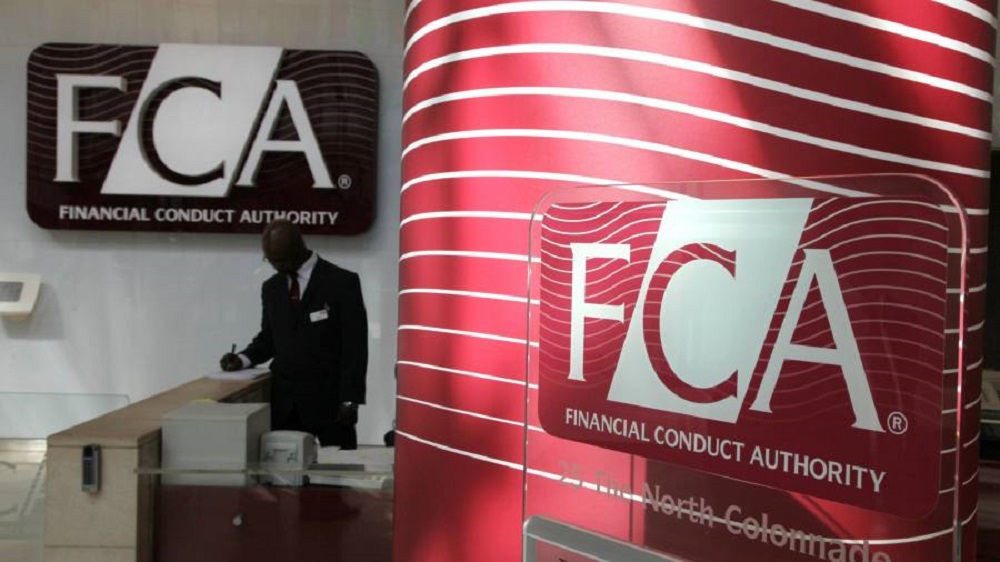
How to Protect Yourself from Forex Scams
Due Diligence
- User Reviews – Bearing in mind that every trader makes losses, disgruntled customers of brokers and EAs might complain that they did not make money as promised. However, looking out for claims about slippage, not being able to withdraw money and other scam actions is a good indicator of the truth.
- Location – Offshore brokers, or robots that have been created by unnamed entities, are not likely to be regulated. This means that they are likely to be hard to get hold of if you need support with a technical issue – and if they are scams, you are even less likely to receive your money back. Make sure a broker has a named location for its HQ, and it is in an area that is covered by one of the regulatory bodies.
- US Regulators: CFTC – The Community Futures Trading Commission (CTFC) is an independent US Government agency created in 1974 that deals with forex trading, as well as other options. The CTFC operates under the Commodity Exchange Act to ensure regulation of the markets and prevent fraudulent conduct.
- US Regulators: NFA – As part of the CTFC, the National Futures Association (NFA) was created to self-regulate the futures trading industry in America. The National Futures Association is the self-regulatory organisation in the USA that deals with forex trading. This body identifies best practice and mandates them for the entire industry and takes disciplinary measures where necessary.
- US Regulators: BASIC – The Background Affiliation Status Information Checker (BASIC) is a free tool provided by the NFA that allows investors to research specific companies and persons when entering into a business agreement – so it is the best place to check for scams. You can register with the NFA to use this search facility and it will let you find out if a broker or individual is registered with the NFA, and if it is currently under investigation.
- UK Regulators: FCA – The Financial Conduct Authority (FCA) is the consumer watchdog agency that is funded by all the companies that supply financial services in the UK. It regulates and licenses forex trading entities, working closely with the Bank of England to ensure a healthy trading environment. A broker must prove that it follows FCA guidelines to be licensed, with disciplinary action taken if it is found to be acting immorally. The FCA has a searchable database which lists all the activities that a business or individual is licensed to provide.
- Other Regulatory Bodies – There is no international body that regulates forex traders; instead, each country has its own system. When you are looking into a broker or an individual, check that it is registered to provide forex trading services in your country – and its own – before deciding.
Too Good to Be True?
If any product sounds too good to be true – whether it is an expert advisor, a trading robot or even a signal seller – it probably is.
Forex trading can be profitable, but it is also risky – there are no guarantees of high profits, no such thing as a ‘secret formula’ and no algorithm that can predict the future of the market.
Unfortunately, the ‘snake oil’ scammers offer these too good to be true ideas – and the new trader with no experience, jumps in with both feet.
Broker Location
Offshore traders aren’t always scamming, but with the different regulatory bodies, there are no mandatory international rules to be followed.
Proof of Claims
You need to do some sleuthing to find out exactly what other people think of the broker, robot or individual – and that can take some time and effort.
Wading through the reviews where people lost money because of the market to find the reviews from people who lost money to scammy behaviour is time-consuming, but worth it.
Beware, especially, the forex traders that make bold claims but provide no evidence at all.
Education
Take on as much education of the markets, currency behaviours and the effect news reports can have on currency as you can, and become your own expert advisor. By learning the trading business and performing trades based on your knowledge and expertise, you can avoid all the big, bold claims.
Final Thoughts
Unfortunately, because it is so unregulated, forex trading is a breeding ground for new and interesting scams which seek to take advantage of the new and inexperienced trader.
To best protect yourself, and your money, from forex trading scams, don’t fall for the outrageous claims; you won’t suddenly become a millionaire overnight without some prior knowledge, experience and losses.
Due diligence on brokers, individuals and even robots can prevent you from making a costly mistake – and, in some cases, losing money forever.
Checking relevant regulatory bodies for registration and membership, finding genuine customer reviews and ensuring that you read all the fine print before investing will help you avoid a potential scam.
Although international regulation of forex trading leaves something to be desired, where possible, use only registered brokers and individuals.
Don’t invest money you can’t afford to lose, don’t trust the ‘snake oil’ claims and make sure that you learn all you can about forex trading before you begin.
Myanfx-edu does not provide tax, investment or financial services and advice. The information is being presented without consideration of the investment objectives, risk tolerance, or financial circumstances of any specific investor and might not be suitable for all investors.
The 10 Steps You Need to Take to Learn About Forex Trading
Read up on the Basics
As the currency market is incredibly volatile, forex trading can be risky for investors. To be successful in making your trades in the forex market, it is important to read up on the basics.
Online articles, finance and trading websites, books and videos are all good places to start learning in an accessible way.
It is useful to begin by learning about the currencies you intend to trade in.
Choosing currency pairs and analysing their movements will help you to become accustomed to certain trends in the market, for example, being able to judge when fluctuation is temporary so you do not exit a trade too soon. This type of analysis will come with practice and it is productive become used to the rhythms of the currencies.
It is also important to increase and maintain your consumption of economic news. Keeping up to date with economic and political developments in your countries of choice will help you to stay informed of potential impacts on the forex market.
Traders should also seek to have a good knowledge of the technical elements involved in trading such as:
- Understanding spreads and transaction costs
- Choosing timeframes
- Learning how to read forex charts
- Basic and advanced trading strategies, such as scalping, part-time trading, carry trading, hedging and margin trading
- Automated trading and signals
Learning how to use leverage safely is also a good time investment. Trading with leverage has the potential to vastly increase the profits to be made from currency movements (but it can also amplify losses). Learning how to set up and use leverage is important on an operational level, whilst being aware of the risks of leverage is crucial to retaining the capital to trade long term.
Reading up on risk management and setting a risk management strategy before beginning to trade is vital. Often, trading success relies on the ability to remain objective when executing a trade as emotions can cloud judgment and lead to unnecessary risks and losses. Look carefully into different risk management strategies, such as setting up stop-loss orders, to safeguard your capital.
Successful traders keep their risk (and therefore their leverage) as low as possible.
Read Trading Forums
There are many trading forums online and these can be great places to glean tips and advice about forex trading. These forums are online communities for traders, where members can ask questions and glean insight from the conversations of others.
Forums will have directories with links to different threads, making it easier to find the specific information that may be useful to you. There is no need to be an active member of a forum, they are just as useful for observing and learning from others’ comments and experiences.
One of the most popular forums for forex trading is Forex Factory. It has a good reputation amongst traders and gives good analysis, news updates and market data.
This site has different sub-forums and features different threads on its forum homepage, organised according to time and popularity.
Baby Pips is another popular forum, particularly with beginners. This forum is aimed at amateur traders, providing an aesthetic and easy to use interface. Its logical organisation into categories and question topics makes it very accessible.
Forums provide the opportunity to learn from the mistakes and successes of others. If you have a question regarding forex trading, it is likely that someone has already answered it on a trading forum.
There are many forex forums full of trader insights out there, so have a browse and find one that is useful for your trading level and approach.
Sign up for a Free Trading Account and Practice
Reading widely and doing your research before beginning your foray into forex trading is important to ensure you are starting from a knowledgeable base, but it is no substitute for real experience of trading in the market.
Opening a forex demo account and practising making demo trades will help you to gain experience of the process and mechanisms involved in making a trade. It will also allow you to gain experience of employing different forex trading methodologies to decide when to place your trades.
The most common forex trading platforms are MetaTrader4 (MT4) and MetaTrader5 (MT5) but, whichever trading platform you choose, there will be information on it available for free online.
Testing out different strategies without the risk of using a live forex account enables you to make initial mistakes in a safe environment. As a guide, it is recommended to place at least 50 demo trades to learn the platform and its crucial features before placing real trades. It is suggested that this should have a time frame of around a month.
With your free trading account, you should become accustomed to:
- Using the platform’s interface
- Changing its settings
- Viewing currency pair charts
- Opening forex orders
- Buying & selling
You will find that, as you trade, you will learn from your successes and mistakes, gaining invaluable experience of deciding when risk is likely to reap rewards and when it is time to close the trade.
Learning when to exit the market is an important skill. It is often compromised by heightened emotions, enthusiasm or irrationality. Many traders find it tempting to stick with their trade, believing the market will change and no longer go against them. Due to the volatility of the market, it is safer to close your trade before losing further.
It can initially be tricky to know when to make calls such as this but, when using a demo account, you can experience a simulation of the pressure and quick decision-making that is required when making trades for real.
Some people find, however, that a demo account does not provide an adequate simulation of the conditions of trading as no money is on the line.
If you feel that you would like to begin trading with cash but aren’t yet ready to trade with large amounts, setting up a micro account may be a compromise.
A micro account allows you to trade in small micro-lots. This means you can gain a true-to-life experience of trading with your own money, but with smaller amounts and reduced risk.
It is also worth noting that, as every trading platform is slightly different, if you decide to change platforms, it is good practice to open a demo account again before trading with your money.
Sign up for a Course or Webinar
Whilst researching independently can be incredibly beneficial, some people will find they can learn better when provided with the material in a structured way. Many brokers offer online courses on a variety of aspects of forex trading.
The benefit of a webinar is that it can be accessed from any location with an internet connection. Information tends to be provided on a single topic, which can help to focus your learning and improve your knowledge of a particular aspect of trading you are finding challenging. For example, reading forex charts or understanding ratios.
If you are seeking a more comprehensive overview of forex trading, a multi-staged online course, such as Asia Forex Mentor’s One Core Program, may be more appropriate for you. These courses vary in delivery but tend to be composed of online videos, background reading and tasks for completion.
Some will provide online contact with a teacher, with the potential for feedback, whilst others will be automated and unmonitored.
There are both free and paid courses available, which will vary in quality, content and usefulness.
Beginner courses are available to develop basic trading knowledge and confidence, as well as intermediate courses to master new skills and improve your current trading performance.
Take the time to find a course that suits your needs, level and preferred learning style.
Financial Trading is not suitable for all investors & involved Risky. If you through with this link and trade we may earn some commission.

Research Brokers
Your choice of broker will have a large impact on how you trade and, particularly if you are intending to use leverage, your profit margins.
For scalping, you will need a No Dealing Desk (NDD) broker. NDD brokers use Straight Through Processing (STP) or Electronic Communication Network (ECN) technology without a dealing desk, which allows faster access to the market.
Market-making forex brokers should be avoided – this is a practice where brokers take the opposite side of trades to their clients.
STP and ECN brokers offer different mechanisms of entry into the market. It is important to understand the differences between brokers and what they can provide. They may offer different liquidity pools, lot sizes and spreads. It is also worth checking their execution guarantees to avoid unnecessary losses from slippage.
Brokers also provide access to different online trading platforms, so ensure you are also comfortable with this aspect of your selection. Most trading platforms are fairly easy to get to grips with, which is important when actioning rapid decisions.
Brokers will offer leverage in different amounts and have differing initial margin requirements. This may be influenced by your intended position size. If you are planning to open a margin account and trade with leverage, look into these conditions before settling on a broker.
The main concern when choosing a broker is that they are reputable and hold a license. FCA UK (the Financial Conduct Authority) is the top regulator in Europe. If your broker is not regulated, your money may not be secure.
Choosing the right broker for you is important so don’t feel rushed or under pressure to make a decision. Instead, take your time to research and speak to brokers until you find one you are comfortable trusting with your hard-earned money.
Open a Real Account and Start Trading on a Strict Budget
Once you have picked up the basics and are feeling more confident in your abilities, it may be time to open a real trading account and gain experience placing trades with your own money.
This will most likely be after around a month of gaining practice using a demo account.
To open a real forex trading account, you will first have settled upon the broker you wish to use.
To open the account, you will need to provide personal information such as your name, address, date of birth, citizenship, employment status, national insurance number or tax ID, and contact information.
You will also need to provide your account currency type. Additional information on your finances such as your annual income and net worth will be required.
Expect to also be asked about your trading experience to date and your trading objectives.
This information is necessary for industry compliance and you shouldn’t be able to open an account without it. If you are not required to submit this information, check that your broker is legitimate, registered and licensed.
Once your information has been submitted, it will need to be processed and verified, which will require submission of relevant documentation such as ID and proof of address.
Once your account is open, you can put funds into the account and begin trading.
After practising with a demo account, beginners can feel more confident and be keen to launch into trading in the market. It is important to keep your confidence in check, however, as it can lead to unnecessary risks and early losses.
Start by trading small and never put more money into your account than you can afford to lose. Setting this strict budget will ensure you do not lose all your capital in the first few weeks.
Trading with a live forex account triggers different emotions from placing practice trades in a demo account. It is sensible to be reserved until you have gained experience with your live account as logic should always guide trades, not emotion.
If you find you are making mistakes with your live account, reassess your strategy. This may involve going back and reviewing the basics to help you reach your goals. Forex trading often requires reevaluation of methods to be successful.
Sign up for Forex Signals
Understanding the signals of the forex market takes a good knowledge of market analysis – such as through technical or fundamental analysis.
For the beginner or amateur traders who trade alongside their day job, this can be a steep and time-consuming learning curve.
To ease the burden of market analysis and constantly tracking your trades, traders can sign up to receive trading signals.
Forex trading signal services are offered by certain brokers or forex analysts. They monitor and analyse the market to identify trends.
This analysis provides information on entry points, profit-taking points and stop losses to ensure a trader has the most up to date analysis on which to base their trading decisions.
Users subscribe to receive forex signals from a particular source and then receive updates via email, text or a dedicated app depending on preference.
As trading orders are updated in real-time, traders can immediately apply signals to their trades. Some providers offer the option to copy their signals to your trading platform so they are completed automatically – this will most likely be a paid-for service.
There are often two tiers of signal provided: free and premium.
Unsurprisingly, premium signals tend to have more support and are more accurate. It should be possible to test free signals on a demo account before signing up to receive paid signals.
You should be able to look up the signal history statistics of a provider to make a judgement on their accuracy and worth.
Forex signals are particularly useful for those who do not have much time to dedicate to watching the market, but they can be a useful strategy reference for all traders.
Create Trading Rules That You Will Not Break
Due to its intensity and volatility, forex trading can easily become consuming. Your emotions are easily heightened and this can cause decision making to become distorted.
It is therefore important to set out some rules for yourself that dictate the limits of your trading account.
Decide how much money you are willing to risk by calculating how much you can afford to lose. Stick to this limitation as if it is set in stone.
It can be sensible to set up some more concrete controls on your trading account.
As part of your risk management strategy, creating a stop loss – also known as a stop order or a stop-loss order – helps to safeguard against unexpected losses if the market turns in an unfavourable direction.
A stop-loss order is a computer activated trade tool that sends an emergency instruction to your broker, telling them to exit a trade when it reaches a specified price.
Due to the volatility of the forex market and the element of human emotion that comes into play in a high-intensity trading environment, setting rules through pre-determined mechanisms such as stop-loss orders ensures your capital is protected.
It is also important to set personal rules for yourself to manage your trading and work-life balance. Make the promise that you will step back from trading if it is becoming all-consuming or having a detrimental impact on your mental health.
Set yourself a schedule with regular breaks and ensure you stick to them to manage your screen time and prevent fatigue.
Setting both strategic and personal guidelines for trading is the best way to support your own success.
Research Different Trading Strategies
Forex trading is complex and can be operated under a variety of different strategies. Traders use these strategies to determine the best entry and exit points to buy and sell currencies.
Fundamental analysis is conducted by looking at fundamental economic indicators to assess currency valuations and likely relative movements. It involves a deep grasp of complex economic data to speculate around future trade and investment trends.
For beginners, knowledge of this kind of analysis will begin by analysing currency flows and keeping up to date with macro-scale economic news.
Technical analysis involves looking at the past and most recent trends (depending on your chosen timeframe) using forex charts. Technical analysis is an umbrella term that encompasses many different methods of trend detection.
An example of some of these specific methods would be inserting trend lines or using moving averages to inform the execution chart in your chosen timeframe.
Using tools such as moving averages, which indicate the trends in movement, is referred to as a trend-trading strategy.
Other trading strategies include:
- Range trading
- Momentum trading
- Breakout trading
- Reversal trading
- Position trading
There are also differing overarching trading strategies such as forex day trading or forex scalping.
Strategies and approaches to forex trading tend to overlap, with any single overall strategy consisting of multiple smaller strategic choices of approach.
For example, a trend trading strategy is regularly employed in most types of overall trading strategy, whether it is scalping, day trading or swing trading.
Understanding the approaches of the most common trading strategies will help you to form a personal strategy for trading in the forex market.
Find a Forex Mentor
A mentor is a counsellor or guide who can aid your learning in a particular subject. A forex trading mentor, such as Asia Forex Mentor, should be an experienced trader who has a high level of knowledge to impart to individuals beginning their forex trading journey.
Beginners may feel overwhelmed by the forex market and a mentor can provide the extra support and guidance needed.
Finding a mentor can significantly improve trading performance as they provide hands-on guidance and support. A mentor can help you to realise the mistakes you are making sooner and fast-track your way to becoming a more successful forex trader.
Mentors should be credible with a proven track record of success. A good mentor should be able to clearly explain their trading process and have records to back up their strategy.
It is also crucial that your mentor is currently trading in the market themselves, either trading their own money or managing money for other people. This means they are immersed in the current market and will be carefully following market trends.
Your mentor should inspire you to become a better trader whilst respecting your individual traits and emotions. The best mentors aim to build your skills and confidence whilst helping you to cultivate your own trading style.
It is important that you feel comfortable talking to your chosen mentor and trust their judgement and teaching. If you don’t respect the ability of your mentor, you will not want to base your own trading strategy off their advice and guidance.
The most rewarding mentor-mentee relationships come from the understanding that mentoring is a two-way street. Both parties can enrich their learning and approaches through the process and find it extremely rewarding.
Mentorship often comes at a cost. Therefore, it is important to take the time to find a knowledgeable and honest mentor who will provide ongoing support, making your investment worthwhile.
Final Thoughts
Entering the forex market requires a steep learning curve that can be daunting. Most of this information is, however, available online and for free.
Some brokers and providers will charge for the curation and delivery of their course content. These courses may be a great time saver but, if you don’t wish to invest early on, similar information can be found through targeted research.
Whether or not you intend to invest money into your forex education, you must invest your time.
Before beginning to trade with your money, it is prudent to gain enough background knowledge to be able to speak confidently about technical aspects such as spreads, ratios and forex charts.
It is also crucial to take the time to gain practical experience in a safe environment, through practising with a demo account before setting up a live forex account.
A solid forex education will ensure you begin your trading career – whether it is amateur or professional – with knowledge of the tools and skills needed for the best possible chance at success.
Myanfx-edu does not provide tax, investment or financial services and advice. The information is being presented without consideration of the investment objectives, risk tolerance, or financial circumstances of any specific investor and might not be suitable for all investors.
Financial Trading is not suitable for all investors & involved Risky. If you through with this link and trade we may earn some commission.

Best for: Long-term investmentPrice: Payment is taken as membership to the platform

Best for: Complete beginners on a budgetPrice: Free, if you register for

Best for: Forex beginners looking for a comprehensive startPrice: Usually £44.99 (appears

Best for: Training recommended by professionals. This training, like many others

Best for: Developing your skillsPrice: Initially free, there may be some paid

Best for: Reliable coaching-based training Established in 2003 by veteran trader

Best for: Beginner to Advanced tradersPrice: $997 Ezekiel Chew the founder at Asia
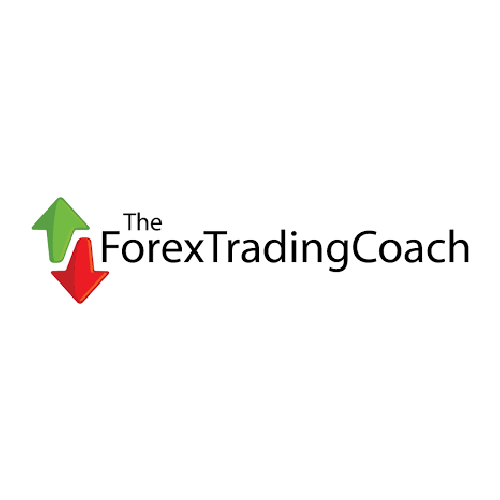
Best for: Traders of all abilities looking to improvePrice: Not stated, enquires

Best for: Personal tuition Thomas Kralow is a seasoned investor who has
Want to Trade Online?
Easy Trading Platform
Copy Experienced Traders
Trade from Your Pocket
Trade with Liteforex
- Best Mobile App
- Free Trading Courses
- Low Fees
- Fast Execution
- 24/7 Customer Support
CFD Trading on financial markets carries risks. Before deciding to trade, you need to ensure that you understand the risks involved.





